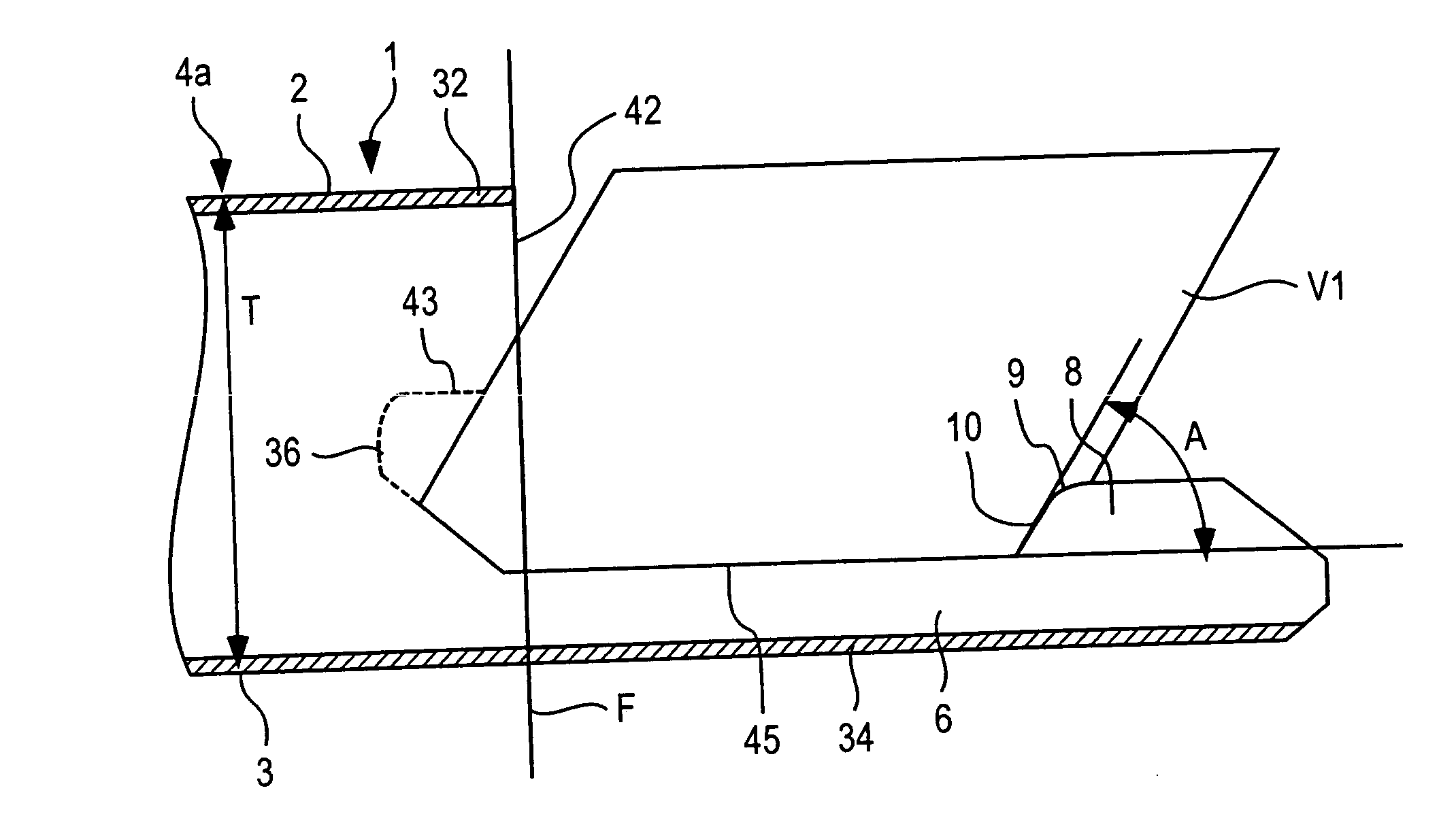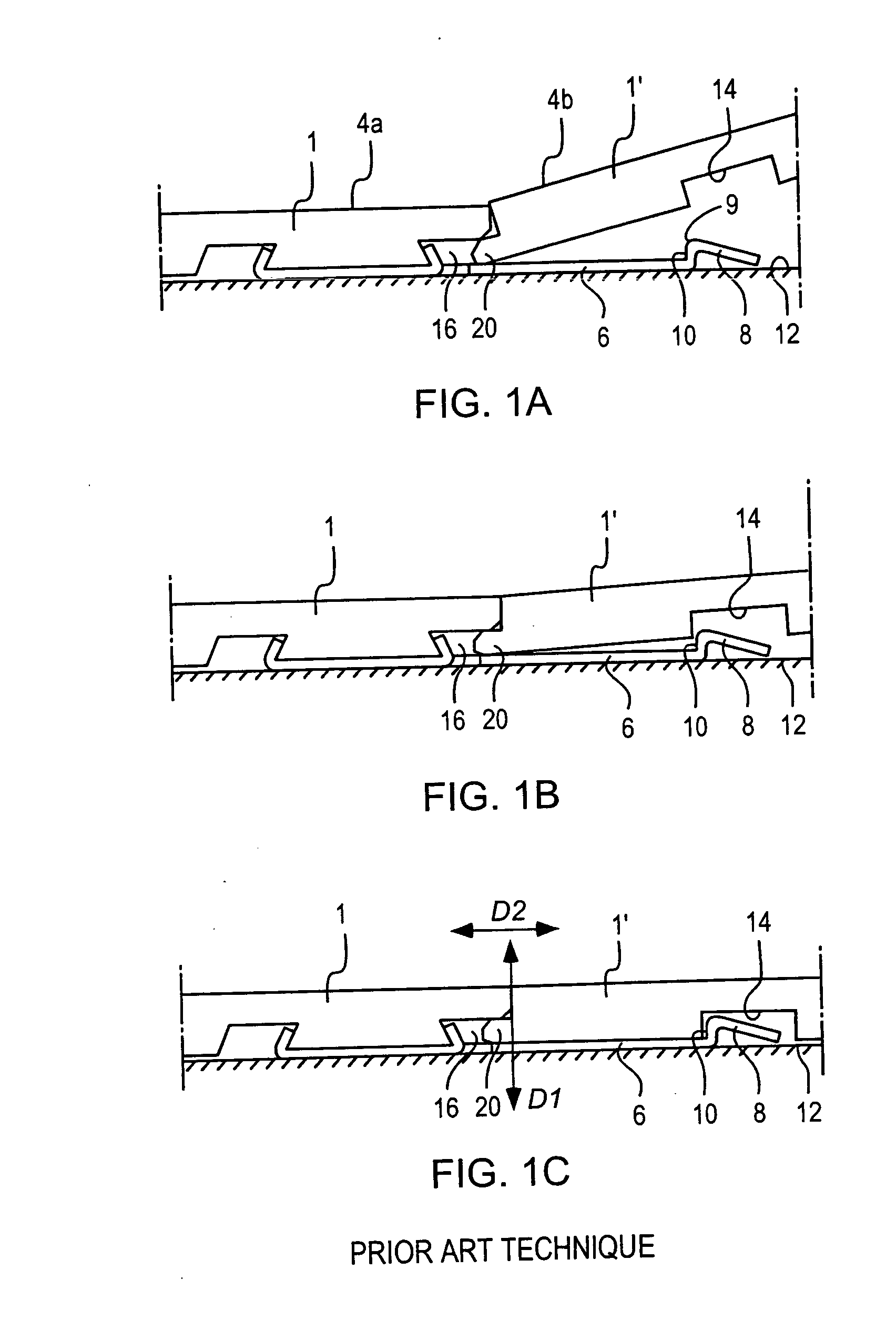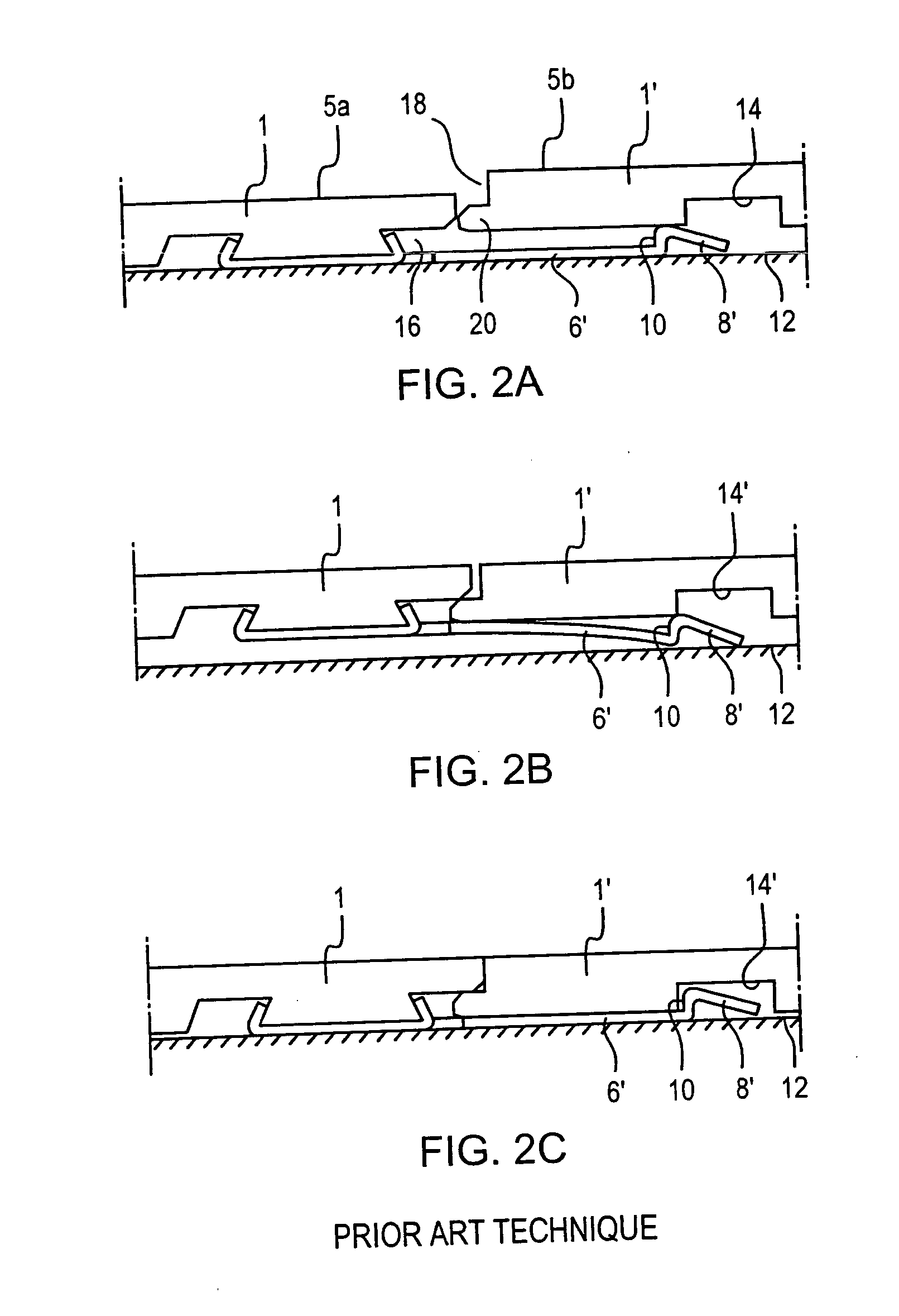Locking system for mechanical joining of floorboards and method for production thereof
- Summary
- Abstract
- Description
- Claims
- Application Information
AI Technical Summary
Benefits of technology
Problems solved by technology
Method used
Image
Examples
Embodiment Construction
[0058] Prior to the description of preferred embodiments, with reference to FIG. 5, a detailed explanation will first be given of the most important parts in a strip lock system.
[0059] The cross-sections shown in FIG. 5 are hypothetical, not published cross-sections, but they are fairly similar to the locking system of the known floorboard “Fiboloc®”and to the locking system according to WO 99 / 66151. Accordingly, FIG. 5 does not represent the invention. Parts corresponding to those in the previous Figures are in most cases provided with the same reference numerals. The construction, function and material composition of the basic components of the boards in FIG. 5 are essentially the same as in embodiments of the present invention, and consequently, where applicable, the following description of FIG. 5 also applies to the subsequently described embodiments of the invention.
[0060] In the embodiment shown, the boards 1, 1′ in FIG. 5 are rectangular with opposite long sides 4a, 4b and...
PUM
 Login to View More
Login to View More Abstract
Description
Claims
Application Information
 Login to View More
Login to View More - R&D
- Intellectual Property
- Life Sciences
- Materials
- Tech Scout
- Unparalleled Data Quality
- Higher Quality Content
- 60% Fewer Hallucinations
Browse by: Latest US Patents, China's latest patents, Technical Efficacy Thesaurus, Application Domain, Technology Topic, Popular Technical Reports.
© 2025 PatSnap. All rights reserved.Legal|Privacy policy|Modern Slavery Act Transparency Statement|Sitemap|About US| Contact US: help@patsnap.com



